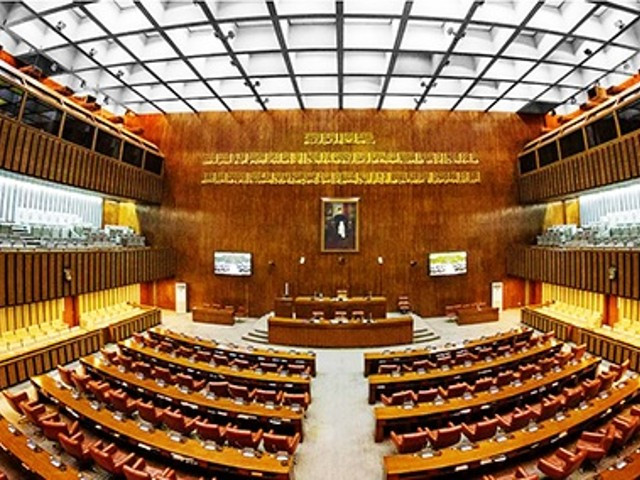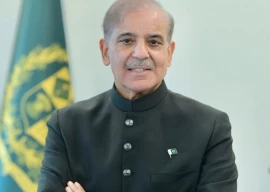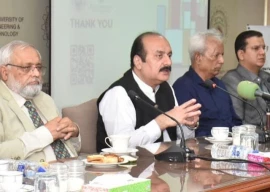
The Senate Standing Committee on Law and Justice reached a consensus on Wednesday on increasing the number of judges in the Supreme Court, and sought comprehensive data on pending cases in the higher judiciary.
The committee has requested details from the Supreme Court Registrar on pending cases and from the Ministry of Law on vacant positions for high court judges.
During the meeting, chaired by Committee Chairman Senator Farooq H Naek, Law Minister Azam Nazeer Tarar proposed the formation of constitutional courts to address constitutional matters.
However, PTI's Hamid Khan opposed the suggestion, arguing that the apex court itself serves as the constitutional court, citing examples where separate constitutional courts have led to complications.
The committee reviewed an amendment bill presented by PTI Senator Fawzia Arshad, which aims to increase the number of SC judges.
Chairman Naek said that the exact number of additional judges needed will be determined once the Ministry of Law provides the necessary details. He observed that the committee will decide on the number of judges required, noting that the current case load has not been matched by an increase in judges, with the number remaining at 17.
Senator Fawzia Arshad pointed out that the recent suggestion for four ad-hoc judges highlights the pressing need to increase the number of judges.
The law minister added that a more informed decision can be made once they review details from the SC Registrar's Office. He suggested that 24 judges might be necessary.
The committee decided to defer the bill to the next meeting for further discussion.
Earlier, the committee chairman mentioned that increasing the number of SC judges could be achieved through simple legislation and did not require a constitutional amendment, suggesting that the number should be increased to 21 instead of 19.
The law minister also proposed that the SC should be the constitutional court and appellate forums should be limited to the high court level. He noted that the apex court should review the number of full court or larger benches formed.
However, PTI Senator Hamid Khan emphasised that the Supreme Court should remain the sole constitutional court, arguing that countries with separate constitutional courts, such as France and Germany, have faced challenges.
He noted that India, with a much larger population, has only one apex court.
Committee member Senator Anusha Rahman expressed that the SC should not overstep its authority and focus on high-profile cases that often receive more attention.
She supported the formation of a constitutional court and asked for clarity on whether the backlog of cases was due to judges' conduct or other reasons.
Law Minister Tarar stated that the issue lies not with judicial independence but with judicial capacity, pointing out that timelines are often overlooked, leading to lower global ratings for the judiciary. He suggested that it might be time to consider a constitutional court.
In response to questions about the Practice and Procedure Act, Tarar noted that the SC had accepted the law, suggesting that the top five senior judges should handle constitutional amendment cases while other judges hear regular cases.
Chairman Naek highlighted that the increasing number of cases in higher courts has led to a higher volume of decisions, stressing the need for more SC judges to manage the workload.
The committee also deferred proposed constitutional amendment bills related to Article 25-B, increasing seats for minorities under Articles 51 and 106, and amendments to Article 62.








-(1)1717678110-0/Kendrick-(1)-(1)1717678110-0-270x192.webp)










COMMENTS
Comments are moderated and generally will be posted if they are on-topic and not abusive.
For more information, please see our Comments FAQ